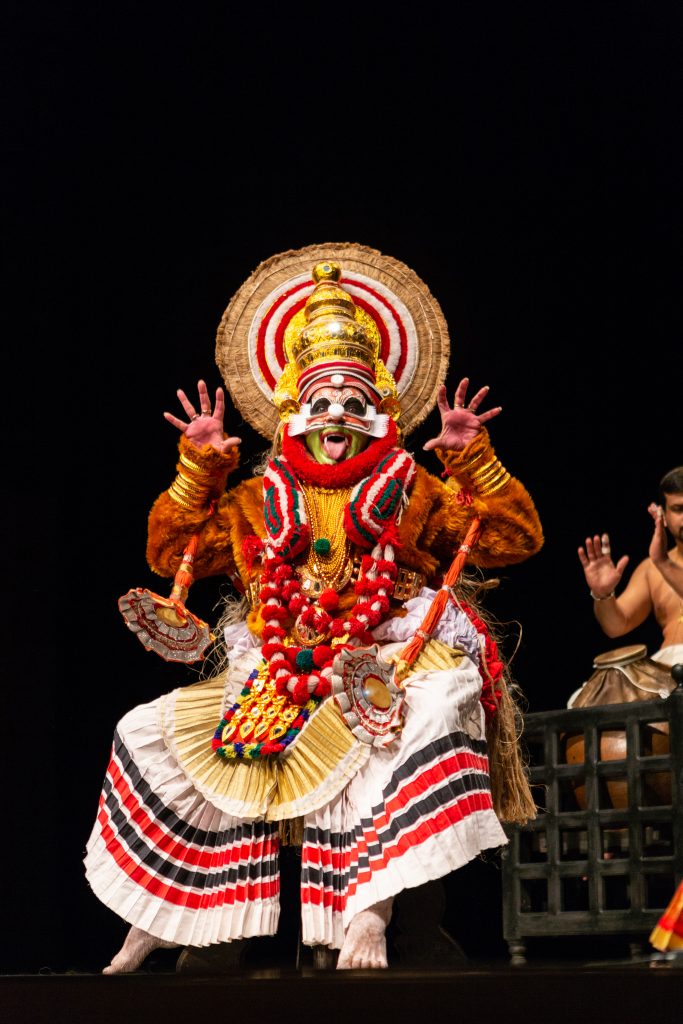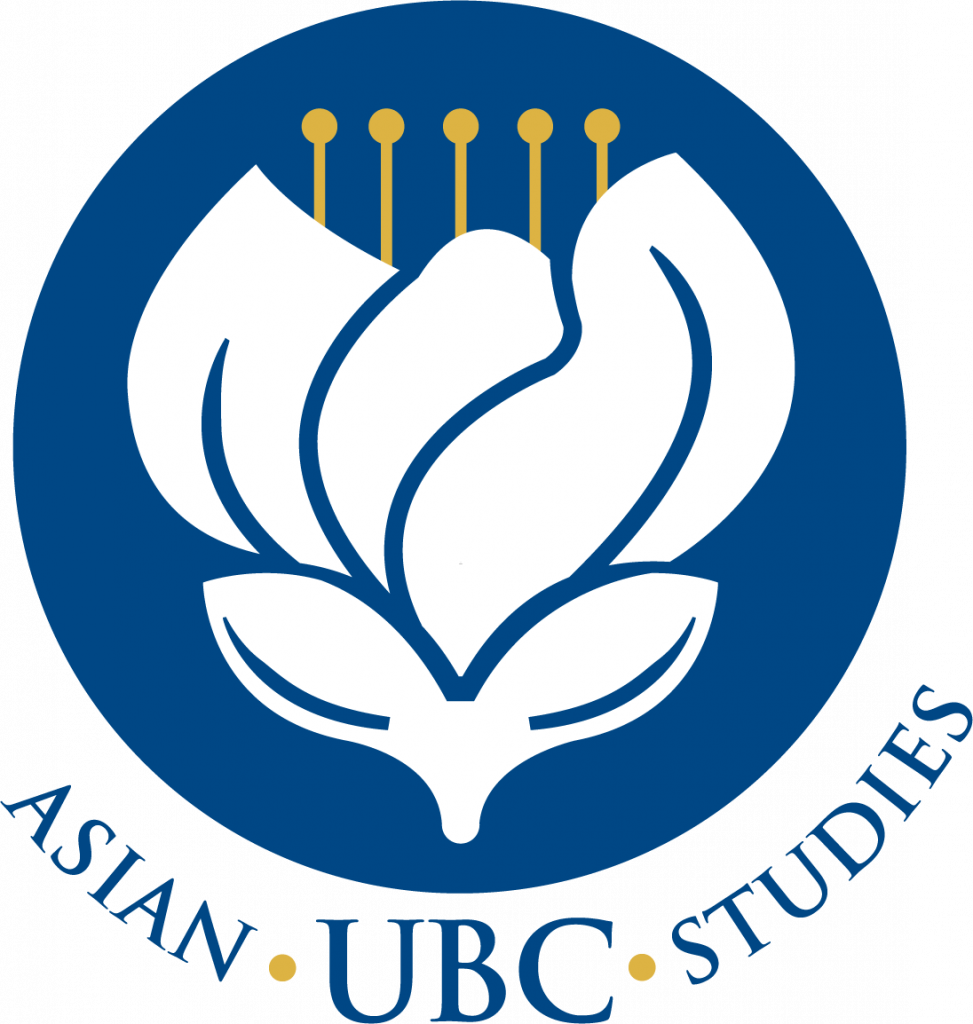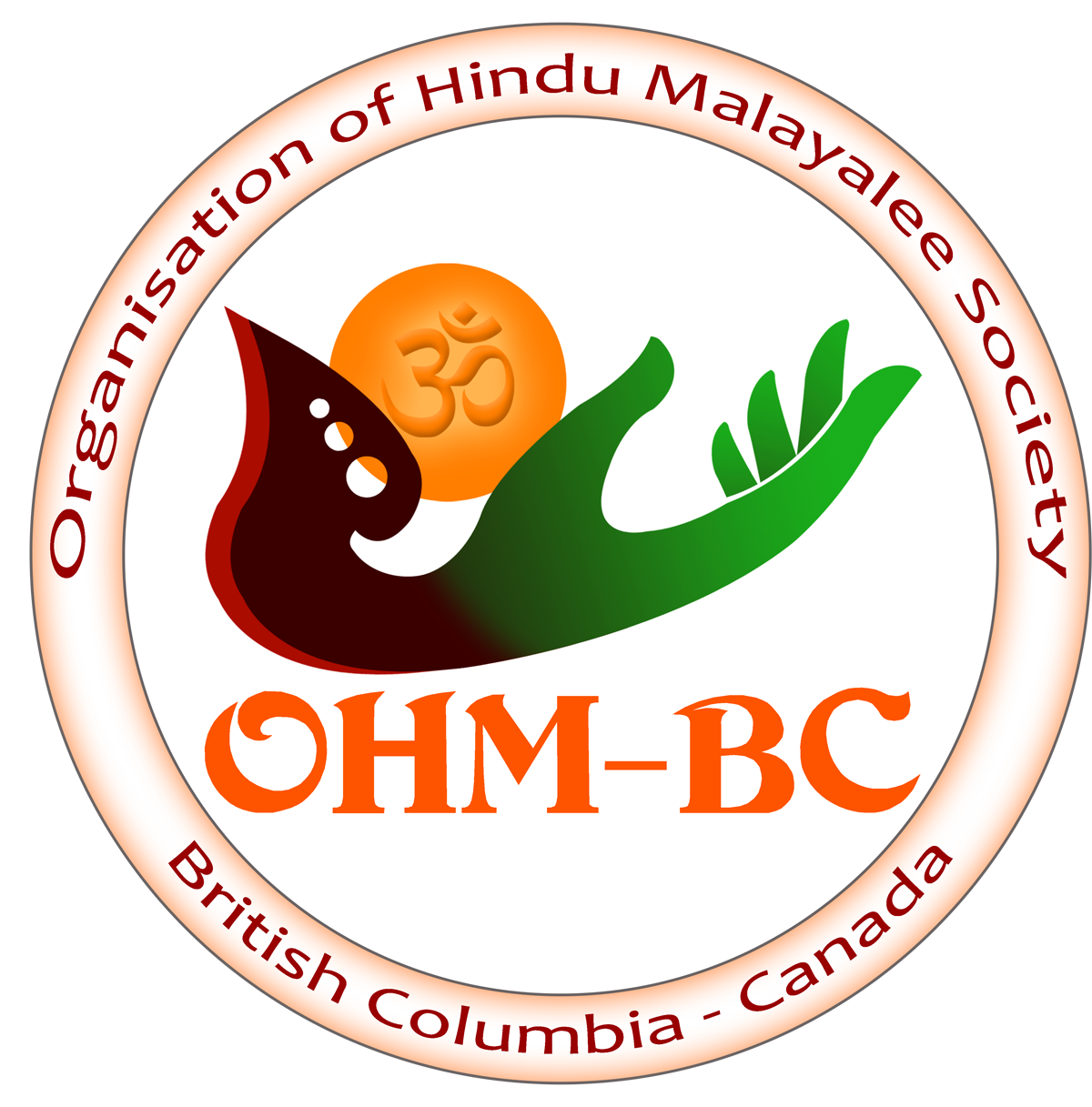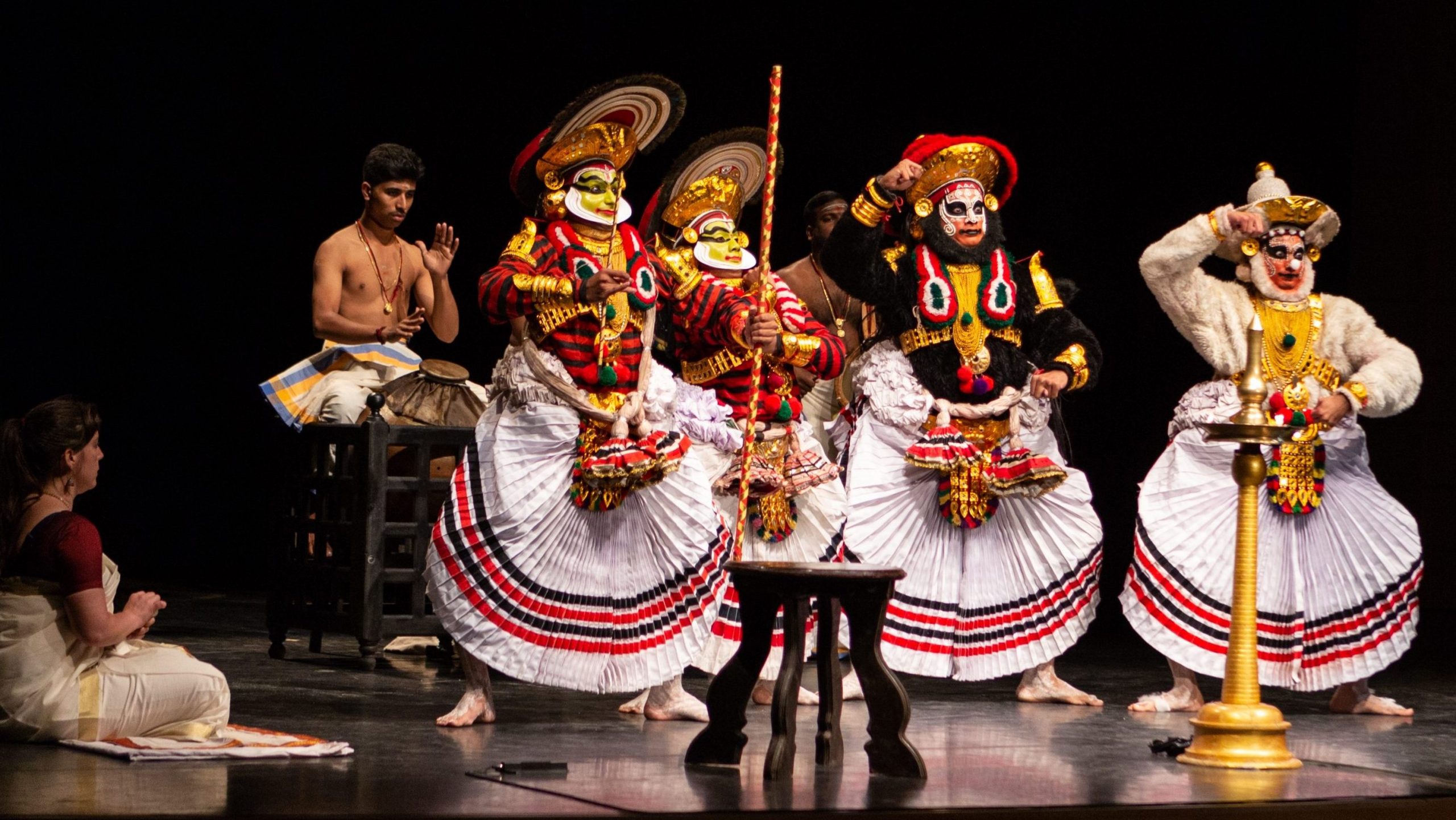
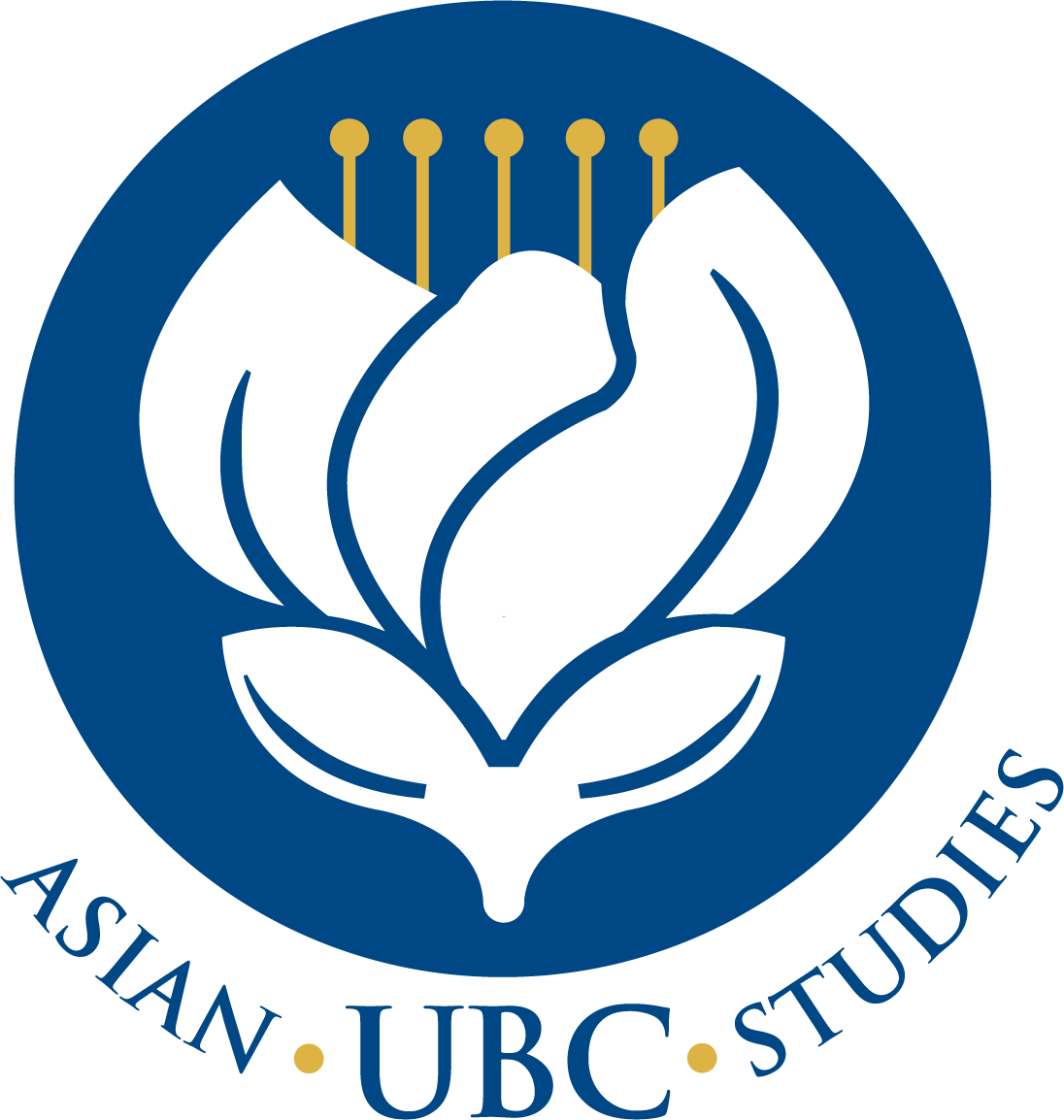
THE UBC DEPARTMENT OF ASIAN STUDIES & INDIAN CLASSICAL MUSIC SOCIETY OF VANCOUVER PROUDLY PRESENT:

Kutiyattam:
A Thousand Years of Sanskrit Theatre
A PERFORMANCE & WORKSHOP SERIES BY THE NEPATHYA ENSEMBLE (KERALA, INDIA) | MAY 17-22, 2024
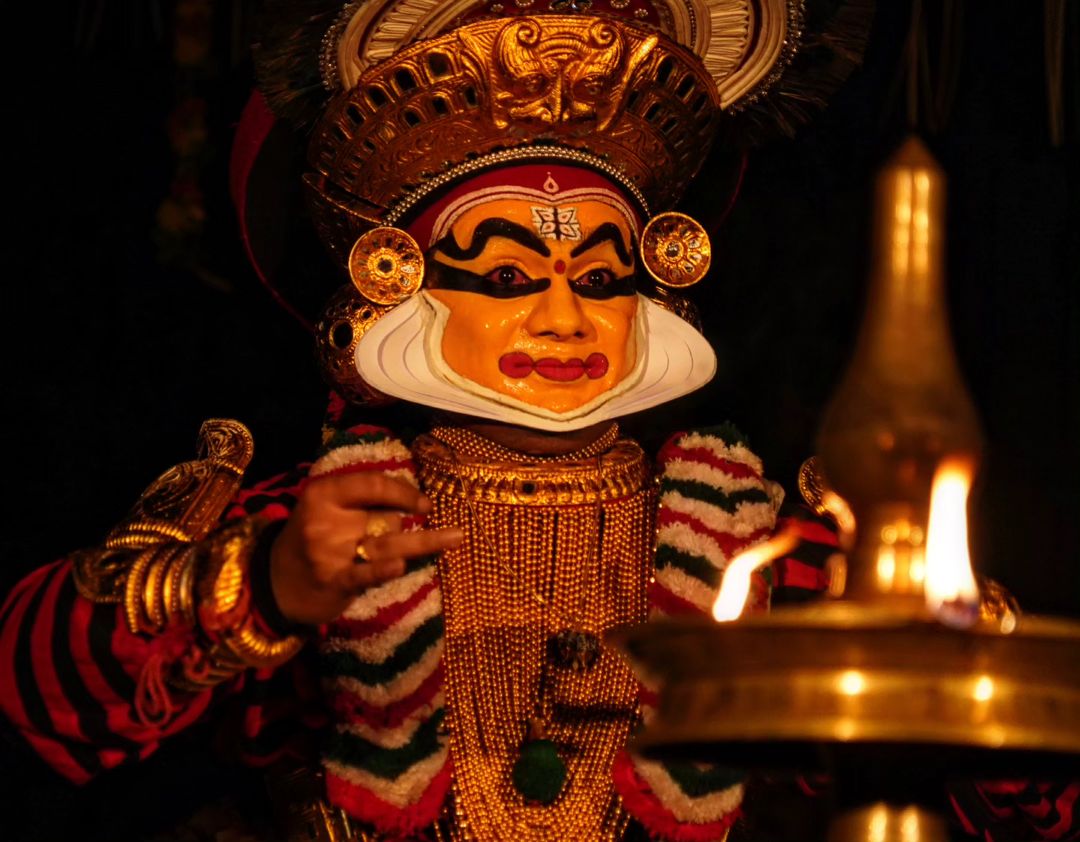
featured events
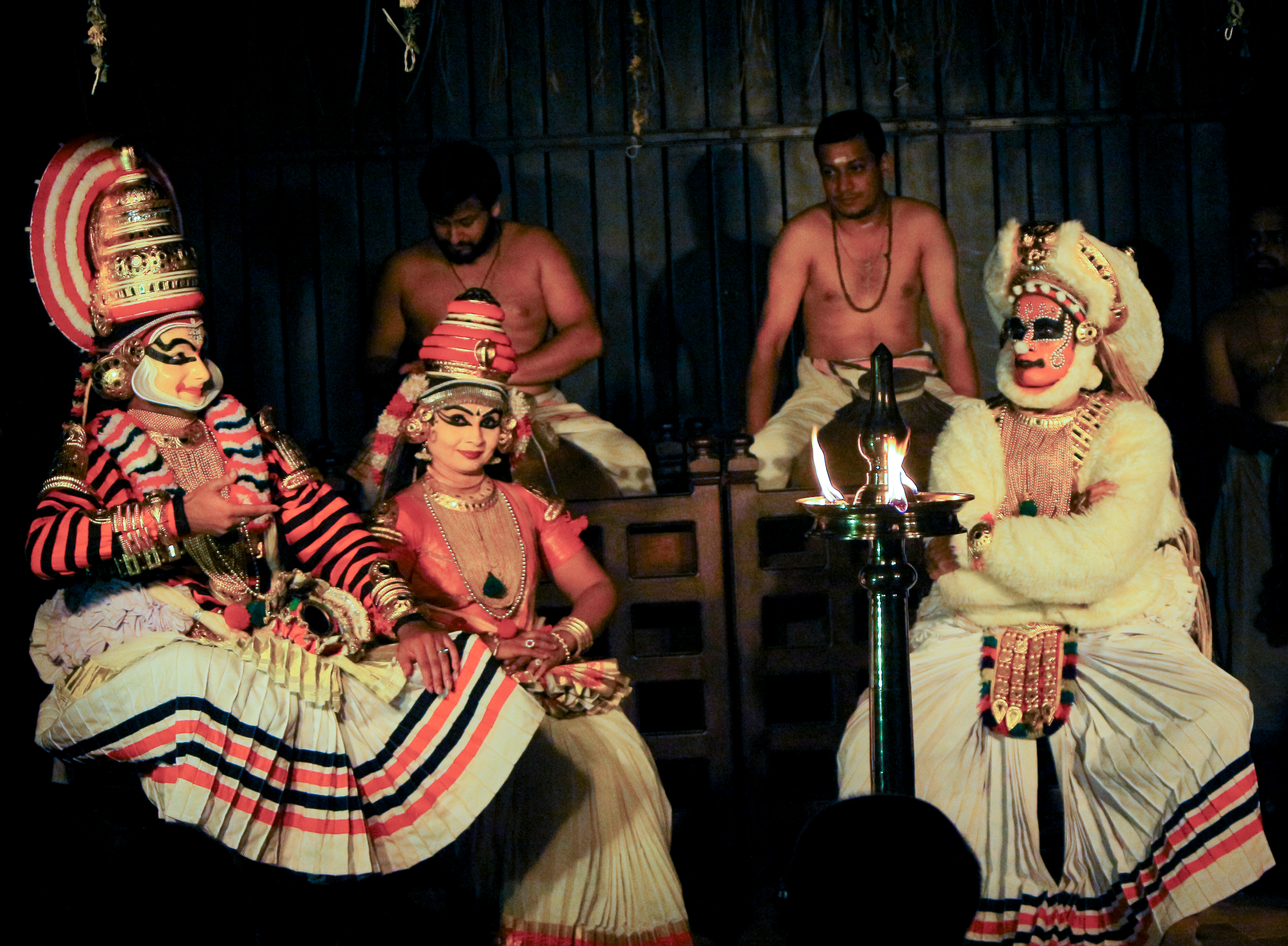
FRI-SAT 5.17-18 | SYMPOSIUM
Reading Body Language: A Symposium on the Traditional Performance of Sanskrit Theatre and Its Translation
- Featured Speakers:
Sudha Gopalakrishnan, Kesavan Veluthat, Leah Lowthorp, Fabrizia Baldissera, Elena Mucciarelli - Location: ONLINE ONLY
- Free & Open to the Public (Registration Required)
- ONLINE: Zoom & Youtube Live-stream
TUESDAY 5.21 |
GALA PERFORMANCE SCREENING
The Auspicious Flower: Kalyāṇasaugandhikam
- Gala Kutiyattam Performance Screening for RasaFest Conference
- Date: May 21, 2024, 6-7.30PM
- NOTE: SCREENING of recorded performance and live meet-and-greet with Nepathya Ensemble
- Screening Location: UBC Allard School of Law, Room 105 | 1822 East Mall, Vancouver | MAP
- Co-organized with Indian Classical Music Society of Vancouver (ICMSV)
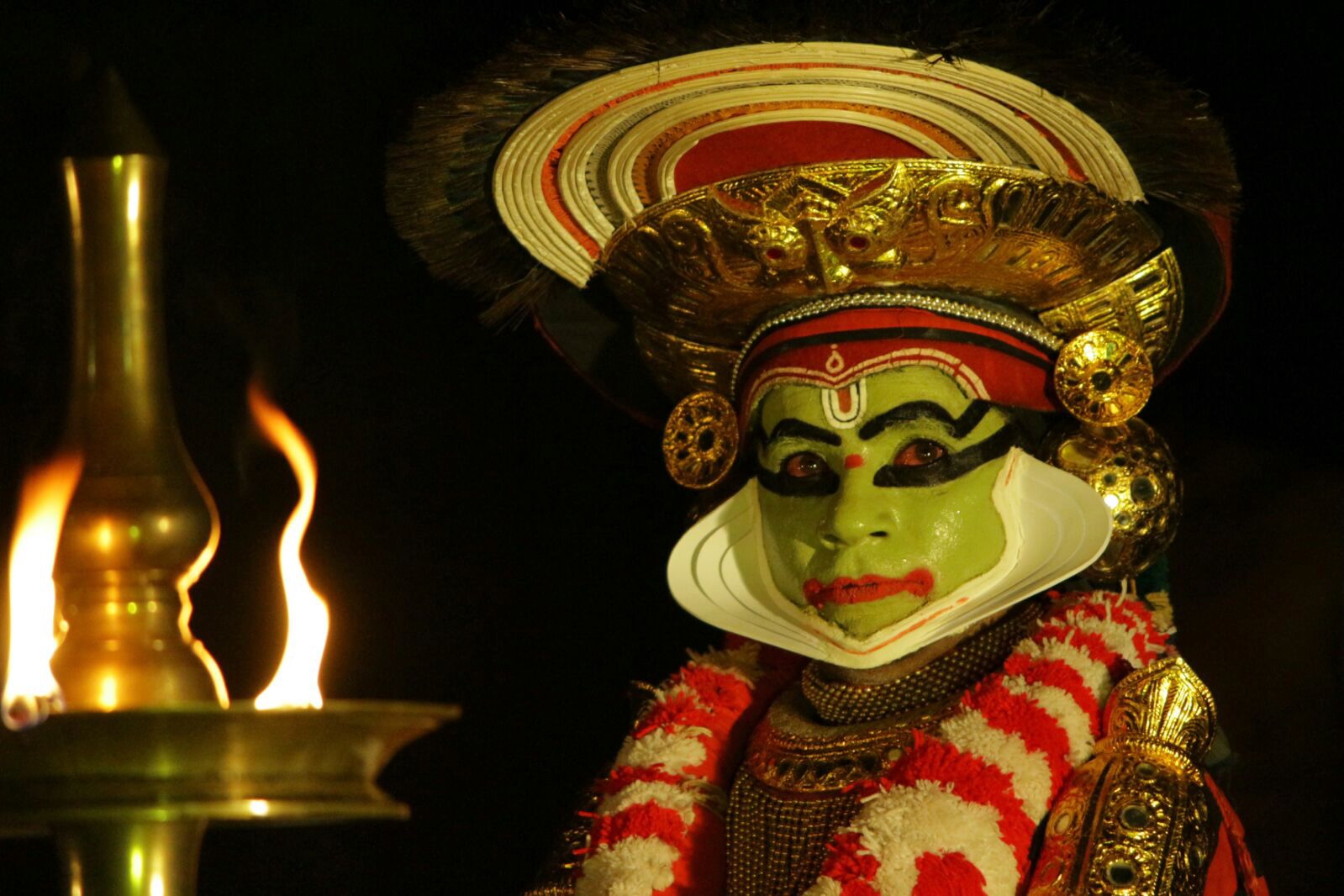
gala Kutiyattam performance
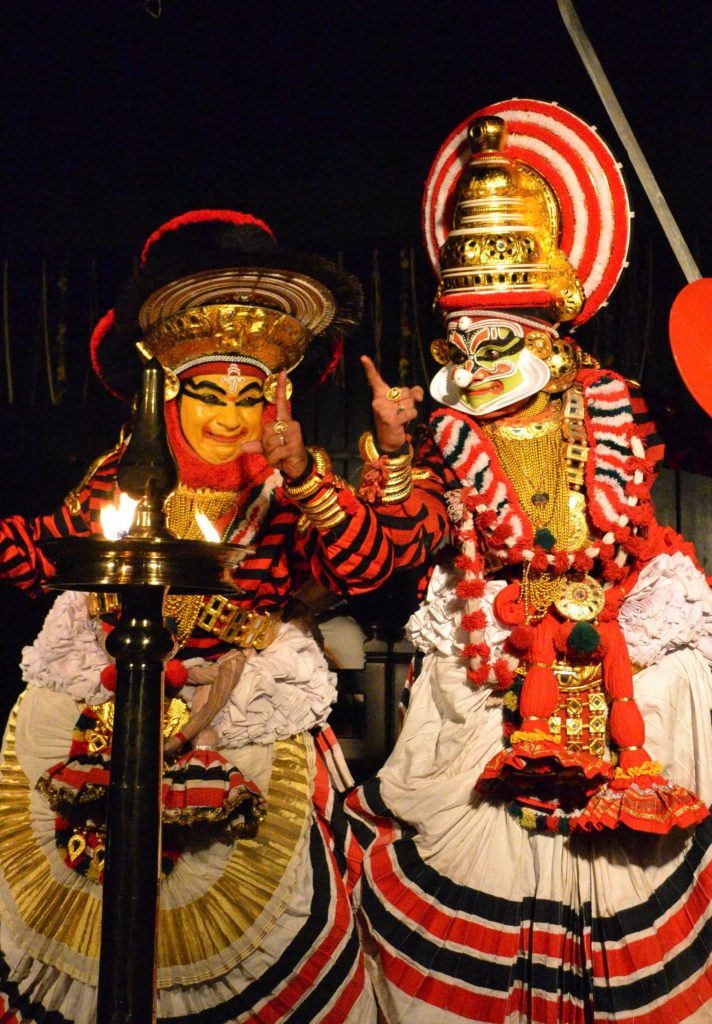
KALYĀṆASAUGANDHIKAM
The Auspicious Flower
NOTE: Special screening of recorded performance, with live meet-and-greet with Nepathya Ensemble on Zoom
Tuesday, May 21, 2024 | 6-7.30PM
Special screening: UBC Allard School of Law, Room 105 | 1822 East Mall, Vancouver | MAP
BHIMA MEETS HANUMAN
In the great epic Mahabharata, while the Pandava heroes are in exile, their wife Draupadi asks BHIMA, the physically strongest of the brothers, to fetch her some delightfully fragrant saugandhika flowers.
On his solitary journey deep in the jungle, he encounters the elderly HANUMAN, the Hindu monkey-god who, ages ago, had been RAMA’s loyal servant in the epic Ramayana. He is also BHIMA’s half-brother, as both are sons of VAYU, God of Wind.
Lord HANUMAN is deep in meditation, and his tail blocks BHIMA’s path. A long verbal and physical battle ensues, in which BHIMA learns more about beauty, power, loyalty, and his true self.
And we, the audience, do, as well.
The Kalyāṇasaugandhikam is a vyāyoga (one-act action play) composed by Nīlakaṇṭha in perhaps the tenth century in the Kannur district of Kerala.
RASAFEST CONFERENCE
Nepathya’s performance of Kalyāṇasaugandhikam will serve as a gala evening event for a major SSHRC-funded conference hosted by the Dept. of Philosophy at UBC focusing on the classical Indian theory of rasa (emotive aesthetics).
For conference participants, Prof. David Shulman will introduce the performance tradition of Kutiyattam and explore the unique modes of emotive expression that are found in this 1000-year old art form. Prof. Shulman’s lecture will be from 4-6PM as part of the conference (registration required).
For more information on RASAFEST and to register, please visit: rasa.arts.ubc.ca.
INDIAN CLASSICAL MUSIC SOCIETY OF VANCOUVER

We are proud to partner with the Indian Classical Music Society of Vancouver to bring this rare form of classical Sanskrit theatre to Vancouver public audiences, so that we can appreciate the artistry and emotional sensitivities of this 1000-year-old tradition. Founded in 2009, ICMSV is a non-profit organization dedicated to putting on vibrant, educational, and inclusive community of rasikas (connoisseurs) of Indian classical musical and performing arts.
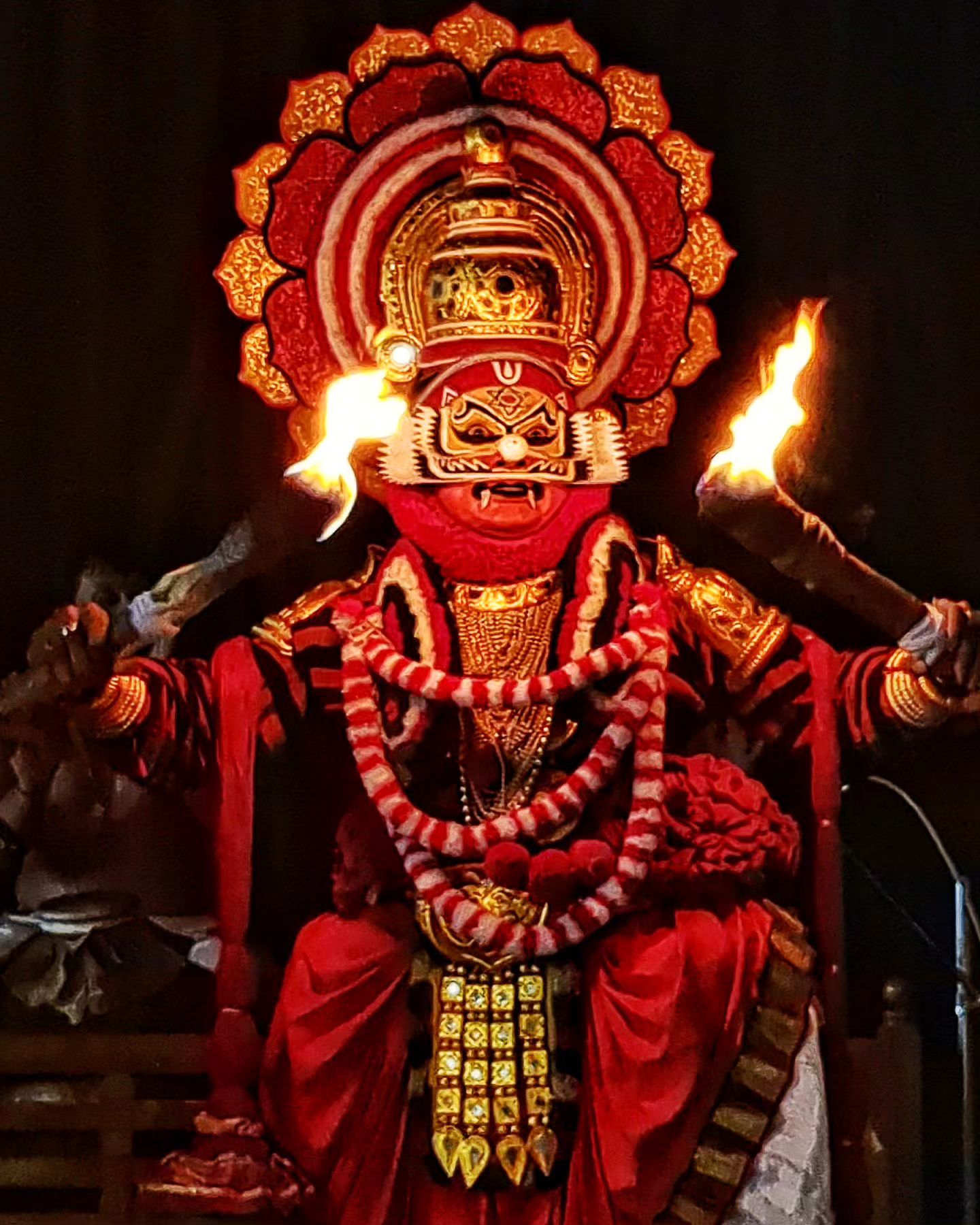
scholarly symposium
READING BODY LANGUAGE:
A Symposium on the Traditional Performance of Sanskrit Theatre and Its Translation
This ONLINE SYMPOSIUM (ZOOM & Youtube Livestream) brings together prominent scholars of KUTIYATTAM and other traditional performing arts of Kerala in dialogue with TRANSLATORS of Sanskrit theatre to explore the cultural and literary value of the “body language” (movement, gesture, facial expressions, and rhythmic engagement) of Kutiyattam and related traditional Kerala performing arts, and how we might effectively connect it with translating HUMOR, especially in the popular Sanskrit BHANA plays.
VENUE: ONLINE (ZOOM & YOUTUBE LIVESTREAM)
DATES: May 17-18, 2024
FREE & OPEN TO THE PUBLIC (TO REGISTER – click HERE)
FEATURED SPEAKERS:
- MAY 17] Kutiyattam and Performance
- Kesavan Veluthat (Delhi) | “The Evolution of Kutiyattam”
- 7AM Pacific | 10AM Eastern | 3PM UK | 4PM CEST | 7.30PM IST
- Sudha Gopalakrishnan (Delhi) | “Performing Intertextuality”
- 8.30AM Pacific | 11.30AM Eastern | 4.30PM UK | 5.30PM CEST | 9PM IST
- Leah Lowthorp (Oregon) | “Embodied Cosmopolitanism”
- 10AM Pacific | 1PM Eastern | 6PM UK | 7PM CEST | 10.30PM IST
- Nepathya Ensemble (Kerala) | “Nepathye: Traditional Kerala Performing Arts”
- 11.30AM Pacific | 2.30PM Eastern | 7.30PM UK | 8.30PM CEST | 12AM IST (May 18)
- YOUTUBE PLAYLIST of performance demos.
- Kesavan Veluthat (Delhi) | “The Evolution of Kutiyattam”
- MAY 18] On Translating Bhāṇa Plays
- Fabrizia Baldissera (Firenze) | “The Experience of Translating Bhāṇas”
- 8AM Pacific | 11AM Eastern | 4PM UK | 5PM CEST | 8.30PM IST
- Elena Mucciarelli (Groningen) & Adheesh Sathaye (UBC), with Nepathya | “Roundtable: On Transcreating Bhāṇas”
- 9.30AM Pacific | 12.30PM Eastern | 5.30PM UK | 6.30PM CEST | 10PM IST
- DISCUSSION of: Mucciarelli & Sathaye, “Transcreating Sanskrit Humor: The Translation and Performance of the Rasasadana Bhāṇa.” Asian Literature and Translation 11.1 (2024): 16-51. Available at: DOI: 10.18573/alt.66
- Fabrizia Baldissera (Firenze) | “The Experience of Translating Bhāṇas”
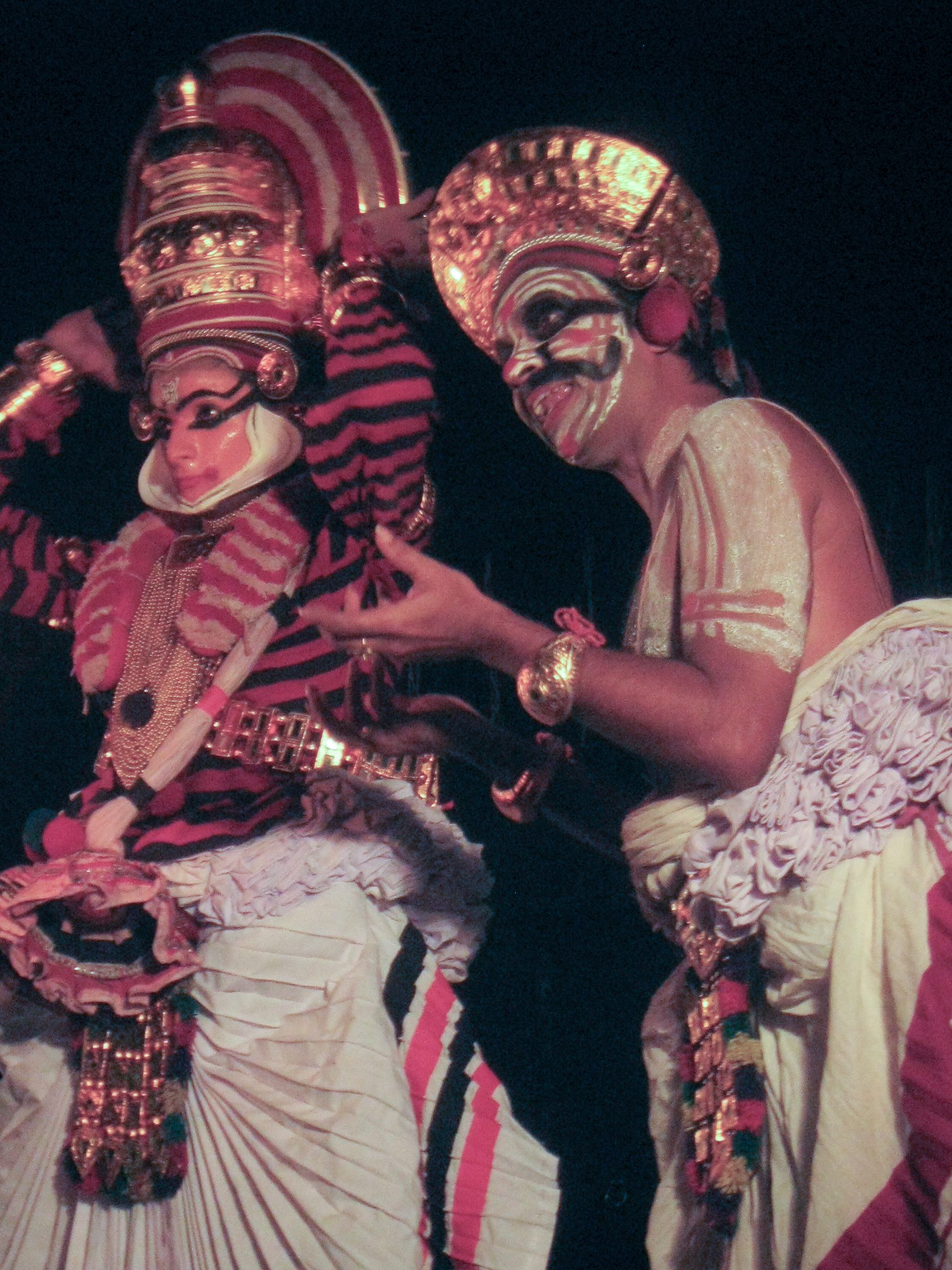
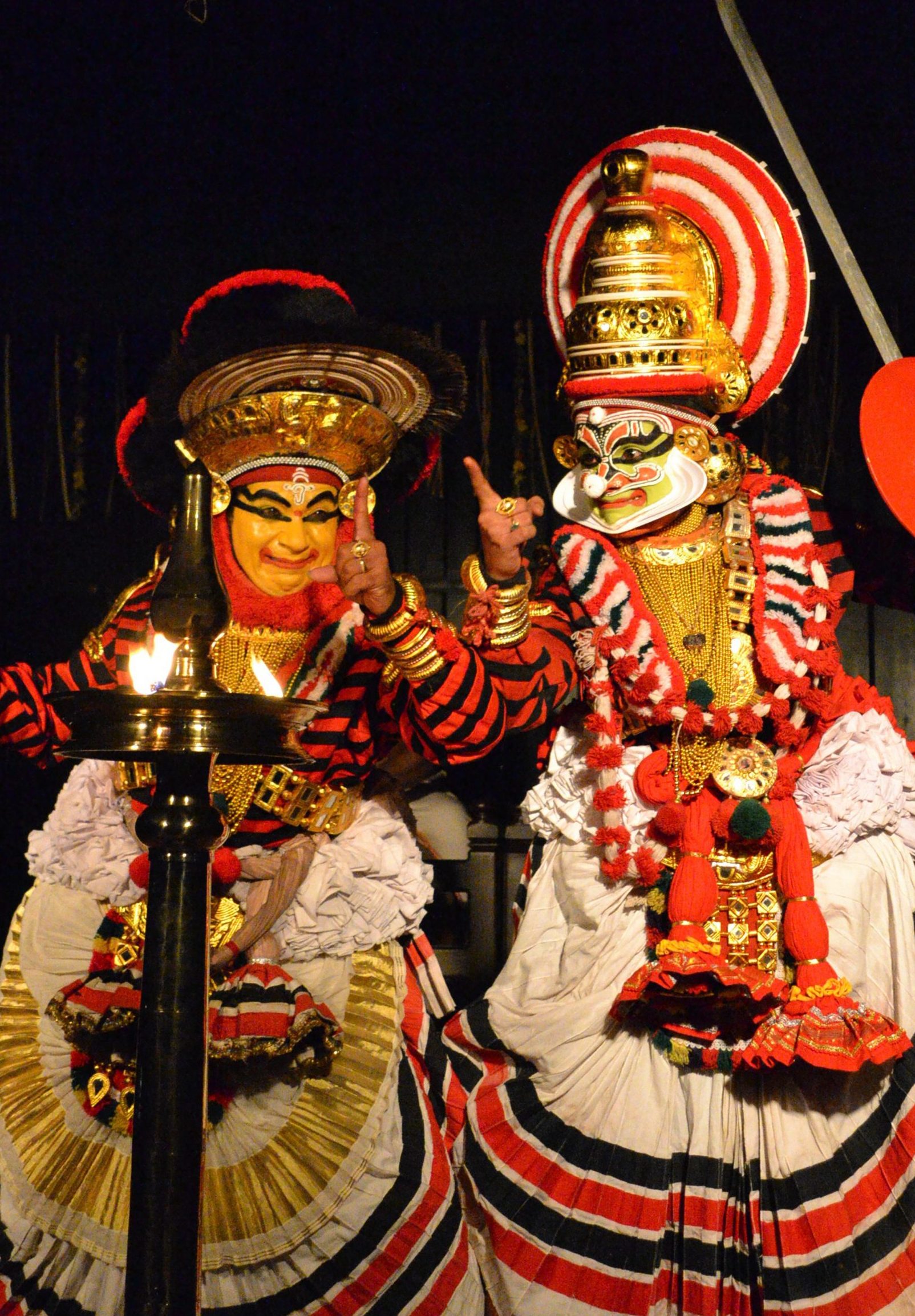
about NEPATHYA
NEPATHYA CENTRE FOR EXCELLENCE IN KOODIYATTAM
Located next to an old Lakshmana temple in the historically important village of Moozhikkulam, Kerala, not far from Kochi International Airport, Nepathya has operated a traditional theatre, or koothambalam, since 1998, keeping alive the noted Ammanoor lineage of Kutiyattam.
Led by Margi Madhu Chakyar, a living culture-bearer of this tradition, and his partner Dr. Indu G., an accomplished performer, scholar, and teacher of Kerala performing arts, (including Nangiyarkoothu and Kutiyattam), Nepathya is dedicated to preserving, performing, and teaching Kutiyattam and related arts in a traditional style, conducting formal and historical research, and fostering democratic relationships among its performing artists.
KUTIYATTAM: TRADITIONAL SANSKRIT THEATRE
KUTIYATTAM, or “performing together” in Malayalam, is the only living tradition of Sanskrit theatre in the world, and has been preserved for a thousand years through ancestral lineages of actors, or Chakyars, in the state of Kerala in deep South India. On a bare stage, actors perform ancient plays written in Sanskrit, using elaborate forms of gestures, facial expressions, movement, dance, and mime to “translate” the texts into a “body language” that anyone can understand. As they use their bodies to offer an intricate, deep, and thought-provoking commentary, the actors ask us as viewers to look into ourselves for answers and meanings.
Fundamental to this process are the mesmerizing, insistent, and rhythms of the mizhavu, a large copper drum that forms the backbeat of this traditional theatrical form, as well as the detailed, colorful, and extravagant costumes and makeup—both of these arts (percussion and costume) are also traditional cultural forms handed down ancestrally in Kerala.
JULY 2018: THE WORLD SANSKRIT CONFERENCE
On July 9, 2018, a full Kutiyattam ensemble from Nepathya performed a staging of Balivadham at the Chan Centre for 17th WORLD SANSKRIT CONFERENCE, hosted by the University of British Columbia, and organized in collaboration with the Indian Summer Festival. It was the first time that the 1000-year old Sanskrit theatre tradition had ever been performed in Western Canada, and with more than 800 attendees, it was the largest performance of Kutiyattam ever in Canada.
